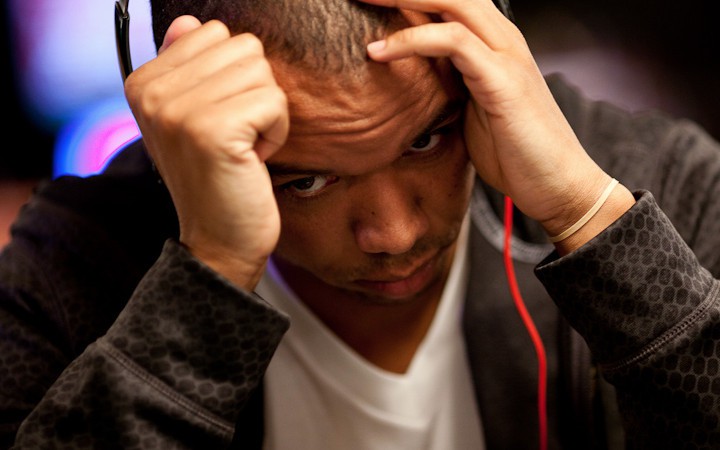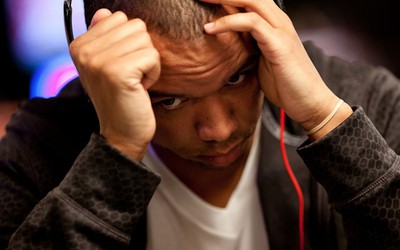

The long-running court battle between Atlantic City’s Borgata Casino and professional poker player Phil Ivey continues to intensify as Borgata is now requesting permission from the federal court to register the judgment in Nevada, where they claim that Ivey has “substantial assets” approximately $100 million.
The motion comes after a New Jersey District Court judge Noel Hilman denied Ivey’s motion to stay enforcement of the judgment and said that he would be able to pursue further appeals only after he pays back the money he won from Borgata.
As per the motion filed by Borgata attorney Jeremy M. Klausner, “Defendant Ivey has substantial assets in Nevada. That is where he lives and that is where his businesses are based. In contrast, he has no identifiable assets in New Jersey. Given the foregoing, Borgata satisfies the ‘mere showing that the defendant has substantial property in the other district and insufficient [property] in the rendering district.’ As a result, good cause is shown and Borgata should be permitted to register this Court’s December 15, 2016 [ruling] in the District of Nevada.”
The casino said that it has located five of Ivey’s properties and businesses in Nevada including Phil Ivey Enterprises, LLC; I.V. Ventures, LLC; and Ivey Poker, LLC. The casino estimates Ivey’s holdings at approximately $100 million.
“Although the extent of Defendant Ivey’s business holdings is unclear, it is believed that Ivey Poker, LLC is the entity behind Ivey League, Ivey’s poker oriented website,” Borgata’s legal team wrote. “Ivey’s holdings have been estimated at $100 million, and the above shows these holdings, at least those that are ascertainable, are based in Nevada.”
A decision with regards to registering the judgment in Nevada is expected in early November.
In September, Borgata also filed a cross-appeal with the US Court of Appeals for Third Circuit against each and every ruling that went against Borgata in the original case, including Judge Hillman’s ruling which dismissed the charge of fraud leveled against Ivey and his companion. Although highly unlikely, should the casino win the case, they will be entitled to triple the damages, which could cost Ivey close to $30 million.
The legal battle between Phil Ivey and the Borgata casino dates back to a series of Baccarat sessions (April to October) six years ago where Ivey and his female companion Cheung Yin “Kelly” Sun won $9.6 million and another $500,000 winnings in craps. The duo won the money through a controversial technique called “edge-sorting” which allowed them to find flaws in the pattern on the back of playing cards that helped them to gain an advantage while playing high stakes Baccarat. At that time, Borgata did not find anything suspicious, and paid them their winnings.
During the same period, Ivey and his companion won another £7.7 million at Crockfords Casino, London using the same technique. However, the casino temporarily declined to pay his winnings following suspicions of him using the edge-sorting technique, but it returned Ivey’s initial £1 million stake.
The casino reviewed camera footage and found that the pair used the prohibited playing technique and refused to pay out their winnings. This led to filing a lawsuit against the Crawfords Casino by Ivey for the non-payment of his £7.7 million winnings. Ivey even admitted to edge sorting but contended that he did not cheat. Later that year, Ivey lost the case in the UK High Court. The court judged that the edge sorting was “cheating for the purpose of civil law”. He took the matter to the British Supreme Court but the court ruled in favor of the casino.
Following the edge-sorting fiasco, in April 2014 the Borgata Casino sued Ivey and his partner claiming that the pair cheated at Baccarat by taking advantage of a defect in the manufacturing of the playing the cards. Interestingly, both Crockfords and Borgata used the same kind of playing cards, manufactured by Gemaco. Later, Borgata also sued Gemaco but a New Jersey Judge denied the Borgata’s motion and ordered the card manufacturer to repay just $27.
The court battle between Borgata and Ivey continued throughout the years and over the past few months there have been several developments.
Here’s a Look at the Phil Ivey’s Edge-Sorting Timeline of Events From 2012-2018:
April – October 2012: Phil Ivey and his female partner Cheung Yin Sun win $9.6 million while playing in four different sessions of Baccarat from April to October at the Borgata Hotel and Casino in Atlantic City, New Jersey. The casino paid $9.6 million and further winnings from craps during the four sessions.
August 2012: Phil Ivey wins £7.7 million (approx. $11 million) playing Baccarat at Crockfords, London. The Casino returned his initial £1 million stake but temporarily declined to pay his winnings following suspicions of him using the edge-sorting technique to improve odds.
May 2013: Phil Ivey sues Genting UK PLC, the parent company of Crockfords Casino for non-payment of his August 2012 winnings.
May 2013: Crockfords Casino issues a response to the Phil Ivey lawsuit and alleges that Ivey and his female companion exploited the casino by taking advantage of defective playing cards, thereby gaining knowledge of what card would come next and stacking the odds in Ivey’s favor.
September 2013: Phil Ivey admits to edge-sorting but contends he did not cheat.
April 2014: The Borgata Casino sues Phil Ivey for $9.6 million claiming he cheated at Baccarat by taking advantage of a defect in the manufacturing of the playing cards.
July 2014: Phil Ivey files a motion to dismiss the Borgata lawsuit and claims that his $9.6 million win was “all skill.”
October 2014: Ivey loses £7.7 million court battle over Crockfords Casino as the UK High Court held that the techniques Ivey used constituted cheating under civil law.
November 2014: Phil Ivey appeals against Crockford’s ruling.
January 2015: Phil Ivey is granted permission to appeal the London High Court decision in his claim against the owners of Crockfords Club.
July 2015: Ivey and his co-defendant, Cheung Yin Sun, file a countersuit against the Borgata Hotel Casino & Spa. Ivey says in the lawsuit that the Borgata intentionally destroyed the decks of cards that were used during these games.
November 2015: Ivey is granted permission to appeal the case against Crockfords Club after a judge ruled that his case raises an important question of law and has ‘a real prospect of success’.
April 2016: Phil Ivey’s £7.7 million appeal in Crockfords Club case gets underway.
October 2016: A US Federal judge dismissed the charge of fraud leveled against Phil Ivey and his companion by Borgata Casino but found the pair to be in breach of New Jersey Casino Control Act.
November 2016: Poker pro Ivey loses appeal against London-based Genting Casinos UK, which owns Crockfords Club.
November 2016: Borgata seeks to claim $15.5 million from Phil Ivey in Baccarat edge-sorting case. The additional $5.4 million represents casino’s “expectation damages”.
December 2016: US District Court Judge Noel Hillman rules that Ivey and Cheung Yin Sun must pay $10.1 million to the casino including the winnings from craps. The judge, however, rejected the casino’s additional $5.4 million “expectation damages” request.
January 2017: Phil Ivey requests ‘final judgment’ on Borgata Baccarat case.
February 2017: UK Supreme Court grants Phil Ivey permission to appeal Crockfords case.
June 2017: Phil Ivey returns to Las Vegas for high stakes action in Bobby’s room.
July 2017: Ten-time WSOP Gold Bracelet winner Phil Ivey skips WSOP and relaunches legal proceedings against Genting Casino’s Crockfords Club seeking to reclaim £7.7 million of winnings plus legal costs by filing the lawsuit with the UK Supreme Court.
August 2017: Borgata sues card manufacturer Gemaco for $10.1 million in edge-sorting case.
October 2017: UK Supreme Court upholds the 2014 Court of Appeal’s ruling and said that on the basis of the Gambling Act of 2005, edge-sorting is considered “cheating”.
March 2018: New Jersey Judge Noel Hillman denies the Borgata’s motion and orders card manufacturer Gemaco to repay $27 in Ivey’s $10.1 million edge-sorting case.
May 2018: Phil Ivey wins Triton Poker Short Deck tournament for $31,849 and another $127,396 for finishing third in HK$ 1 million Short Deck tournament.
June 2018: Phil Ivey returns to WSOP 2018 and cashes over $125,000.
July 2018: Ivey’s lawyer requested the stay of judgment pending appeal while filing a motion citing that the “enormity of that amount would clearly be of devastating impact,” and that a lump sum payment of $10.1 million will cause “irreparable harm” to both Ivey and his partner Cheung Yin Sun.
August 2018: Borgata casino files a motion in federal court to deny a motion from Ivey’s lawyers that would delay the judgment and allow him to avoid posting a bond to cover the amount pending appeal. Borgata lawyer’s argued that Ivey’s return to poker means he can pay $10.1 million judgment.
August 2018: Judge Noel Hillman denies Ivey’s motion to stay enforcement of the judgment, without bond, pending the appeal to a higher court.
August 2018: Phil Ivey along with his female companion Cheung Yin Sun once again files an appeal in the federal court in Philadelphia after Judge Noel Hillman denied their motion to stay enforcement of the judgment, without bond, pending the appeal.
September 2018: Borgata casino files a cross-appeal with the US Court of Appeals for the Third Circuit. The casino requested the higher court to examine all New Jersey District court rulings that went against Borgata casino including the Racketeer Influenced and Corrupt Organizations Act (RICO) violation. As per Borgata’s original RICO violation claims, Phil Ivey could be entitled to pay $30 million.
October 2018: Borgata seeks to target Ivey’s assets in Nevada as the casino believes that Ivey is worth roughly $100 million.
February 2019 Borgata gets the go-ahead from New Jersey District court to seek Ivey’s funds in the state of Nevada.

